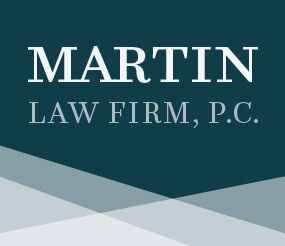This is an all too common scenario: someone owes you money, you sue them in court, the court awards you a money judgment, and the debtor still refuses to pay. There is a saying that you cannot get blood from a stone. This means that in some situations, collecting and enforcing a judgment will not result in payment. If the debtor files bankruptcy, the debt is often discharged. If the debtor has very little income or assets, then the debtor may not have the ability to pay or have assets that are enough in value to satisfy a judgment. However, in other situations, the debtor is just unwilling to part money to pay you. In these situations, you must use legal remedies to enforce the judgment to get paid.
Money Judgments From a Magisterial District Judge
If your judgment arose from a Pennsylvania Magisterial District Judge (MDJ), it is likely to be a smaller judgment amount. The judges have jurisdiction to hear and decide cases where the total damages claimed do not exceed a specified amount. If you were awarded a judgment from a Magisterial District Court, then your remedies for enforcing the judgment are limited to the seizure of the tangible personal property of the debtor. The property can be sold, and the proceeds used to satisfy the judgment.
To seize and sell the debtor’s tangible personal property, the plaintiff in the lawsuit can request an Order of Execution from the MDJ so long as there is no appeal by the defendant within the thirty (30) day appeal period. The Order of Execution is given to a sheriff or constable who will have the power to take the defendant’s property, schedule a sale, and then hold the sale. Any proceeds from the sale can be applied towards the judgment.
Pennsylvania laws do allow a judgment from an MDJ to attach as a lien against the debtor’s real property if a transcript of the record showing a final judgment has been filed in the appropriate county court of common pleas. Transferring a certified Pennsylvania judgment to the court of common pleas can be done as soon as thirty (30) days after the entry of the final judgment from the MDJ. The lien upon the real property is the same lien as if the judgment was originally obtained in the court of common pleas. The lien will last for five (5) years, but it can be revived for an additional five (5) years with the filing and service of a Writ of Revival. During this time, the debtor cannot sell the property unless and until the lien is satisfied through payment. This can happen during the closing on the sale of the property or a refinancing of the mortgage on the property.
Money Judgments From The PA Court Of Common Pleas
Money judgments obtained from a Pennsylvania county court of common pleas is usually a larger money judgment since there is no limit on the amount awarded. Therefore, the plaintiff who receives the judgment has many more remedies to enforce the judgment.
When the judgment is recorded with the court, a plaintiff has the right to conduct post-judgment discovery. Post-judgment discovery can include a deposition (questions under oath) of the debtor, written interrogatories (written questions) for the debtor, and a request for the debtor to produce documents. These methods are used to compel the debtor to disclose the debtor’s assets and income. Plaintiffs can also use the services of a third-party investigator to search for assets such as real estate, automobiles, boats, and bank accounts through a search of public records. When the assets are disclosed, the plaintiff must move quickly to seize the assets.
Can Personal Property Be Seized In A Pennsylvania Judgement?
- Judgments from Magisterial District Court and Court of Common Pleas. A plaintiff can seize tangible personal property which are items such as household furnishings, jewelry, and business and office equipment.
- Judgments from the Court of Common Pleas. A plaintiff, in addition to tangible personal property, can seize the following: bank accounts, brokerage accounts, accounts receivables, interests in partnerships or membership interests in limited liability companies, homes and condos, and many other similar assets.
Pennyslvania Judgment Laws
Pennsylvania laws govern the substance and procedure for enforcing any money judgment; therefore, the advice and guidance of a debt collection attorney is often necessary. Procedurally, there are filing requirements for Writs of Execution and other legal documents, time limitations for judgments and appeals, and service rules that can impact the ability to seize assets and mitigate a defendant’s legal challenges to the enforcement efforts. Substantively, there are a wide array of laws that could be implicated. Some of these laws include:
- Bankruptcy
- Exemption of Certain Assets or Wages
- Fair Debt Collection Practices
- Writs of Execution
- Uniform Commercial Code
- Lien Priority
- Fraudulent Transfers
- Creditor’s Rights
As is often the case with any legal matter, experienced debt collection attorneys can advise clients on cost-effective strategies. Debt collection attorneys can help the client assess the likelihood of success, costs to achieve an outcome, and the financial impact of the decisions.
THE MARTIN LAW FIRM, P.C. – DEBT COLLECTION LAW FIRM
We have over 20 years of experience in debt collection matters. We know how to perform due diligence before undertaking a matter to help you avoid unnecessary costs and expenses while at the same time, helping you decide on a cost-effective plan to enforce a judgment in Pennsylvania. Contact us today at 215-646-3980 for a free case evaluation.
